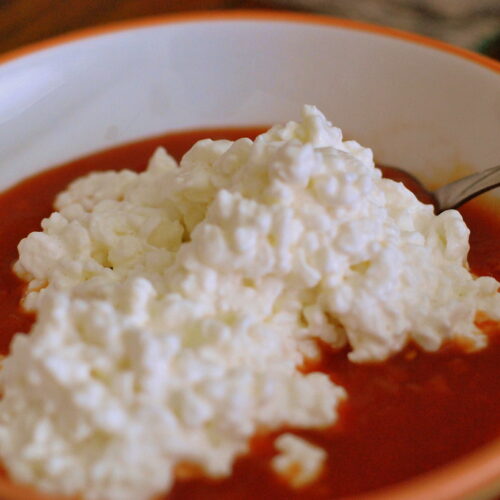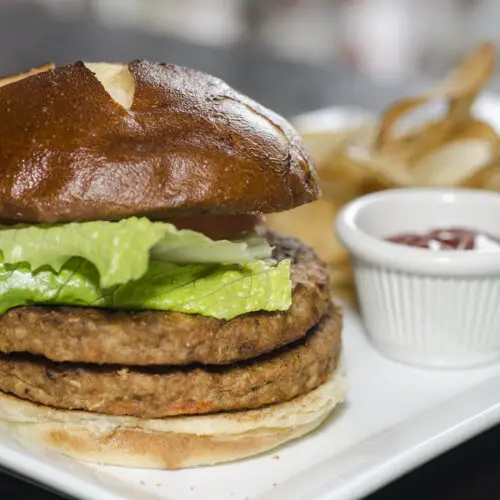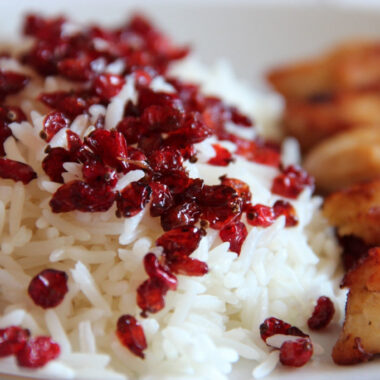Nigeria, often referred to as the “Giant of Africa,” is a nation of incredible diversity, with over 250 ethnic groups, each contributing to a rich tapestry of culture, language, and cuisine. Nigerian food is a celebration of this diversity, blending bold flavors, vibrant colors, and hearty ingredients to create dishes that are as nourishing as they are delicious. From spicy stews to starchy staples, Nigerian recipes reflect the country’s agricultural abundance, communal values, and culinary ingenuity. In this article, we’ll dive into the essence of Nigerian cuisine, explore some of its most beloved recipes, and provide step-by-step guides to bring these dishes into your kitchen.
The Foundations of Nigerian Cuisine
At the heart of Nigerian cooking are ingredients that thrive in the country’s tropical climate: yam, cassava, plantain, rice, beans, and a variety of leafy greens like spinach (known locally as “ugwu” or “tete”). Proteins such as fish, goat, chicken, beef, and bushmeat are staples, often paired with palm oil, groundnut oil, or egusi (melon seeds) to create rich, flavorful bases. Spices like scotch bonnet peppers, ginger, garlic, and indigenous seasonings such as iru (fermented locust beans) or ogiri add depth and heat to many dishes.
Nigerian meals are typically hearty and communal, designed to feed families and bring people together. Soups and stews, served with “swallows” (starchy foods like pounded yam, eba, or amala), dominate the cuisine, while snacks and street foods like puff-puff and suya showcase the country’s knack for quick, flavorful bites. Whether it’s a festive occasion or a simple family meal, Nigerian food is about abundance, flavor, and connection.
Let’s explore some iconic Nigerian recipes, their cultural significance, and how you can recreate them at home.
Recipe 1: Egusi Soup with Pounded Yam
Overview
Egusi soup is one of Nigeria’s most popular dishes, especially among the Igbo people of the southeast. Made from ground melon seeds, this thick, nutty stew is packed with protein and typically served with pounded yam, a smooth, stretchy staple that’s a labor of love to prepare. The combination is a classic example of Nigerian “soup and swallow” pairings, where the starchy base soaks up the rich flavors of the stew.
Ingredients (Serves 4-6)
For the Egusi Soup:
- 1 cup ground egusi (melon seeds)
- 500g assorted meats (beef, goat, or tripe), cut into chunks
- 1 cup smoked fish, deboned and flaked
- 1 medium onion, finely chopped
- 2-3 scotch bonnet peppers, blended (adjust for spice preference)
- 1/2 cup palm oil
- 2 cups spinach or ugwu leaves, washed and chopped
- 2 tablespoons ground crayfish
- 1 seasoning cube (Maggi or Knorr)
- Salt to taste
- Water or stock (about 3-4 cups)
For the Pounded Yam:
- 1 medium yam tuber (about 1-1.5kg)
- Water for boiling
Instructions
Egusi Soup:
- Prepare the Meat: Wash the assorted meats thoroughly. In a pot, season with salt, half the chopped onion, and a seasoning cube. Add enough water to cover the meat and cook on medium heat until tender (about 30-45 minutes). Reserve the stock.
- Toast the Egusi: In a dry pan, lightly toast the ground egusi over low heat for 3-5 minutes, stirring constantly to release its nutty aroma. Set aside.
- Cook the Base: Heat the palm oil in a large pot over medium heat until it melts and becomes translucent (don’t let it smoke). Add the remaining chopped onion and sauté until soft, about 3 minutes.
- Add Egusi: Stir the toasted egusi into the oil, mixing well to form a thick paste. Cook for 5-7 minutes, stirring occasionally to prevent burning.
- Incorporate Liquids: Gradually add the reserved meat stock (or water), stirring to achieve a smooth consistency. Simmer for 10 minutes, allowing the egusi to thicken.
- Season the Soup: Add the blended scotch bonnet peppers, ground crayfish, and cooked meat. Stir well and simmer for another 10 minutes. Adjust seasoning with salt and an extra cube if needed.
- Add Fish and Greens: Gently fold in the smoked fish and chopped spinach or ugwu leaves. Cook for 5 more minutes until the greens wilt but retain their vibrant color. Remove from heat.
Pounded Yam:
- Prep the Yam: Peel the yam and cut it into chunks. Rinse thoroughly to remove dirt.
- Boil: Place the yam pieces in a pot, cover with water, and boil over medium-high heat until soft (about 20-30 minutes). Test with a fork; it should pierce easily.
- Pound: Drain the yam and transfer it to a mortar (or use a stand mixer for a modern twist). Pound with a pestle until smooth and elastic, adding a splash of hot water if it’s too stiff. This takes about 10-15 minutes traditionally.
- Shape: Mold the pounded yam into balls or scoops for serving.
Serving
Serve the egusi soup hot in a bowl alongside a generous portion of pounded yam. Use your hands to tear off a piece of yam, roll it into a ball, and dip it into the soup for a true Nigerian experience.
Cultural Note
Egusi soup is a staple at celebrations like weddings and naming ceremonies, symbolizing prosperity due to its rich ingredients. Pounded yam, labor-intensive yet revered, reflects the value placed on effort and tradition in Nigerian culture.
Recipe 2: Jollof Rice
Overview
Jollof rice is arguably Nigeria’s most famous dish, a one-pot wonder of spiced, tomato-infused rice that’s sparked friendly rivalry with Ghana over whose version reigns supreme. This vibrant red dish is a party favorite, often served with fried plantain, chicken, or salad, and it’s a testament to Nigeria’s love for bold, communal meals.
Ingredients (Serves 6)
- 3 cups long-grain parboiled rice
- 1 large onion, chopped
- 4 medium tomatoes, blended
- 2 red bell peppers (tatashe), blended
- 2-3 scotch bonnet peppers, blended (adjust to taste)
- 1/2 cup vegetable oil
- 2 tablespoons tomato paste
- 1 teaspoon thyme
- 1 teaspoon curry powder
- 2 bay leaves
- 2 seasoning cubes
- 4 cups chicken stock (or water)
- Salt to taste
- 500g chicken (optional), cooked and fried
Instructions
- Prep the Rice: Rinse the rice under cold water until the water runs clear to remove excess starch. Set aside.
- Blend the Base: Blend the tomatoes, bell peppers, and scotch bonnet peppers into a smooth puree.
- Cook the Stew Base: Heat the vegetable oil in a large pot over medium heat. Add the chopped onion and sauté until translucent, about 4 minutes. Stir in the tomato paste and fry for 2-3 minutes to deepen its flavor.
- Add the Puree: Pour in the blended tomato-pepper mixture. Add thyme, curry powder, bay leaves, and seasoning cubes. Cook on medium heat, stirring occasionally, until the mixture reduces and the oil begins to separate (about 15-20 minutes).
- Cook the Rice: Add the rinsed rice to the pot, stirring to coat it evenly in the stew base. Pour in the chicken stock (or water), ensuring the liquid just covers the rice. Taste and adjust with salt.
- Simmer: Cover the pot with a tight lid (or foil, then a lid, for a traditional “smoky” flavor). Reduce heat to low and cook for 25-30 minutes, checking occasionally. Avoid stirring too much to prevent mushiness; instead, fluff with a fork when done.
- Rest and Serve: Once the rice is tender and has absorbed the liquid, remove from heat and let it sit, covered, for 5 minutes. Serve hot with fried chicken and plantain slices.
Cultural Note
Jollof rice is a symbol of West African pride, with Nigeria’s version known for its smoky undertones (achieved by letting it slightly “burn” at the bottom) and robust spice profile. It’s a must-have at parties, symbolizing festivity and unity.
Recipe 3: Suya (Spicy Grilled Skewers)
Overview
Suya is Nigeria’s answer to street food perfection—tender, spicy skewers of meat (typically beef or chicken) coated in a peanut-spice blend called “yaji.” Originating from the Hausa people of northern Nigeria, suya is a smoky, addictive snack sold by roadside vendors known as “mai suya.”
Ingredients (Serves 4)
- 500g beef (sirloin or flank), thinly sliced
- 1/4 cup ground roasted peanuts
- 2 tablespoons ground ginger
- 2 tablespoons paprika
- 1 tablespoon cayenne pepper (adjust to taste)
- 1 tablespoon garlic powder
- 1 teaspoon onion powder
- 1 teaspoon salt
- 2 tablespoons vegetable oil
- Wooden skewers, soaked in water
Instructions
- Make the Yaji Spice: In a bowl, mix the ground peanuts, ginger, paprika, cayenne, garlic powder, onion powder, and salt until well combined.
- Marinate the Meat: Rub the beef slices with vegetable oil, then coat generously with half of the yaji spice mix. Let it marinate for at least 1 hour (overnight is best).
- Skewer: Thread the marinated beef onto the soaked skewers, weaving them tightly.
- Grill: Preheat a grill or oven to medium-high heat (about 200°C/400°F). Grill the skewers for 8-10 minutes, turning occasionally, until cooked through and slightly charred.
- Finish: Sprinkle the remaining yaji spice over the hot suya for extra flavor. Serve with sliced onions and tomatoes.
Cultural Note
Suya is more than food—it’s a social ritual. Vendors grill it over open flames, and it’s often enjoyed with friends late into the night, paired with cold drinks and lively conversation.
Conclusion
Nigerian cuisine is a vibrant reflection of the country’s people, land, and spirit. From the comforting richness of egusi soup to the festive flair of jollof rice and the fiery kick of suya, these recipes offer a taste of Nigeria’s soul. They’re not just meals but stories—of tradition, resilience, and community. Whether you’re a novice cook or a seasoned chef, trying these dishes at home is a delicious way to connect with one of Africa’s most dynamic cultures. So, gather your ingredients, embrace the heat, and let Nigeria’s flavors dance on your palate.


















